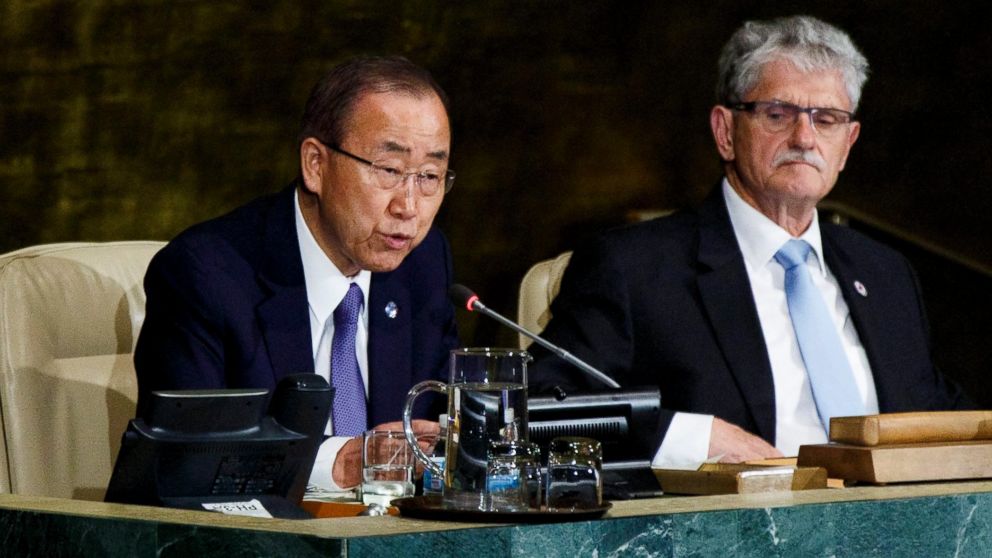UN Chief Slams Saudi Pressure That Led to Removal From Children in Conflict Blacklist
The report said Saudi coalition in Yemen killed hundreds of children.

— -- Secretary-General of the United Nations, Ban Ki-moon admitted today that he removed the Saudi Arabia-led coalition in Yemen from the U.N.'s blacklist of groups that kill children, because he was threatened by reduced funding.
The Saudi-led coalition had been listed in "parties that kill or maim children" and "parties that engage in attacks on schools and/or hospitals," in the annex of the U.N.'s annual report on children and armed conflicts.
On Monday, Ban Ki-moon removed the Saudi-led coalition from the annex, a spokesperson said in a statement, "The Secretary-General shares the objective that the report reflect the highest standards of accuracy possible."
He said the U.N. accepted a proposal from Saudi Arabia that the "United Nations and the Saudi-led Coalition review jointly the cases and numbers cited in the text."
The children and armed conflict report stated that the Saudi-led coalition killed 510 and injured 667 children in Yemen. Ban Ki-moon had said, "Pending the conclusions of the joint review, the Secretary-General removes the listing of the Coalition in the report's annex."
Today the Secretary-General admitted that the motives may have been financial.
"There has been fierce reaction to my decision to temporarily remove the Saudi-led Coalition countries from the report’s annex." He said in a press conference, "This was one of the most painful and difficult decisions I have had to make."
"At the same time, I also had to consider the very real prospect that millions of other children would suffer grievously if, as was suggested to me, countries would de-fund many UN programmes," the statement continued. "Children already at risk in Palestine, South Sudan, Syria, Yemen and so many other places would fall further into despair."
Ban Ki-moon defended his decision by acknowledging the delicate political balance of the U.N. "I fully understand the criticism, but I would also like to make a larger point that speaks to many political challenges we face."
He added that increased attention should be paid to the actions of the U.N.'s membership. "It is unacceptable for Member States to exert undue pressure. Scrutiny is a natural and necessary part of the work of the United Nations."




